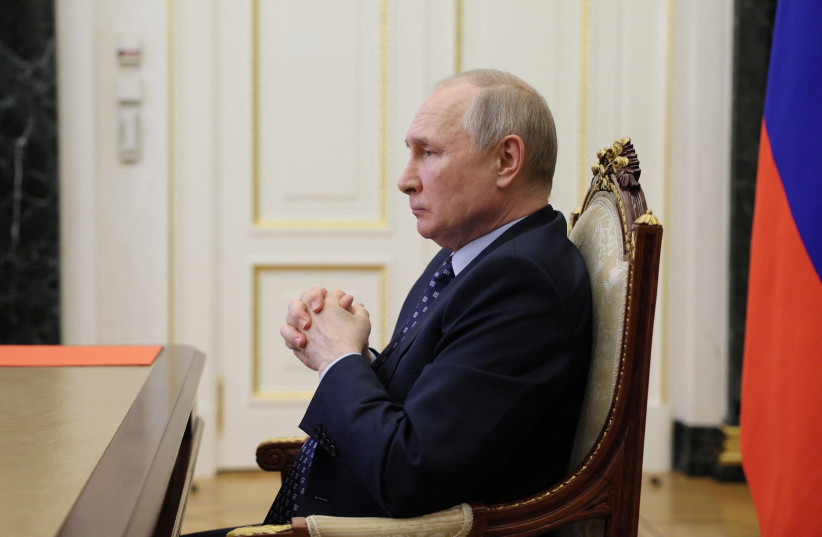‘What could make a person act this way? What leads someone to such an extreme display of power that brings heavy tragedy to thousands of people?”
The world watched in shock as Ukraine’s Nova Kakhovka Dam was destroyed. People have been killed, others are missing, and thousands more have been evacuated. Reports are contradictory, with each side blaming the other and denying its role as the attacker.
No one would be surprised if it was unequivocally determined that this was an act of war by Russia – a war that, by all accounts, is being carried out by one man, and one man alone.
What could make a person act this way? What could lead someone to such an extreme display of power, bringing major tragedy to thousands of people? What makes one person feel they have the right to determine the fate of so many lives? A personality like Vladimir Putin sparks many people’s curiosity and interest.
I’ll begin with the caveat that Putin has never been to my clinic for a formal psychiatric evaluation, so I cannot speak for him on a personal level. It is possible, however, to explore in general terms what turns a person into an unrestrained tyrant.

Each person is characterized by his motives and sense of purpose. This motive can become pathological and twisted. It can become imbalanced and cause distress to the person or his environment, impairing his ability to function normally.
What is narcissism?
Narcissism is defined as a person’s inflated sense of self, excessive self-love, and a constant search for the validation of his own importance, even at the expense of others. Narcissists often have a life story in which they were unsuccessful children who were not “seen” enough or whose presence was not acknowledged enough by their environment. They may have been abused, ignored, or generally given the impression that they were unimportant. Such a childhood can lead to feelings of isolation and depression or, alternatively, a need for compensation and self-promotion at any cost.
As one grows older, the expression of these qualities becomes more pronounced. The need to show the world that “I’m the best” is never satiated, and there is always a thirst for more and more.
Now, what if such a person were to get a hold of limitless political and military power? What happens if this person’s narcissistic nature not only runs his own life and the lives of his family and those around him, but what if he were to gain power over his entire society on a political, social and national level?
A leader with narcissistic tendencies usually won’t be content with merely serving his immediate public. He’ll want mass recognition and will strive for achievements he can take credit for. His expectations and ambitions may lead him to ignore any system of checks and balances – be they the legislature, the courts, or his political opponents. He’ll make critical decisions – in this case, decisions that determine the fate of innocent Ukrainians – all while the welfare of the public that elected him is nowhere near the forefront of his mind.
Political narcissism can be effective for certain purposes, such as a leader’s determination to prove his leadership, which can result in him demonstrating that he is invested and motivated. However, the clear principles of appropriate leadership, transparency, and humanity are likely to fall away on this person’s path toward feeling important and being highly regarded.
The way to deal with narcissists is not to fall into the trap of their charisma and assertiveness, not to believe their empty declarations (because they are not acting on our behalf, but, rather, for themselves), to establish clear boundaries, and not to be caught off guard by their behavior.
As far as Putin is concerned, his own public image as a strong and all-powerful leader who everyone talks about and fears, and whose power everyone recognizes, matters much more than the Western world’s flimsy condemnation of the loss of Ukrainian lives in Kherson. When the overarching goals are honor and legacy, developing nuclear weapons or unrestrained AI systems are merely a theoretical red line.
The writer is a psychiatric specialist at the MindMe Center for Advanced Psychiatric Treatment.
